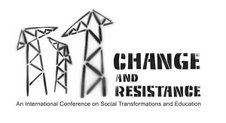Anna Suska,
Elzbieta Okroy,
Ewa Okroy,
Krzysztof Leszczynski
Mental mapping of border inhabitants is still subject to many important, unanswered questions. Although many classical publications were issued regarding perception of place, little of them deals with change of that perception. What deserves thorough study is not only the change itself, but the triggers of such change in perceiving space as well – especially relations to physical and functional (both formal and informal) change of the environment.
The example of Oder line is significant and interesting for many reasons, among which the most important are the genesis of populations on both sides of the river, former political system that conducted in specific security policy in this area, multicultural and dynamic environment which is crucial for successful discourse analysis as main methodology for this research.
The research places this change in specific economical and political situation and focuses on dynamics of visible (human, capital) and invisible (forces triggering change, hidden ideologies, values and symbols) flows. Of major importance are change „triggers”, which have different forms and ways of occurence. Mental space constructed by inhabitants and meanings transmitted by institutions remain also in certain relation, which defines cultural transmission and strategies of domination and symbolic power. It is therefore crucial to shift the analysis of change from the point of view based on „how something functions?” to „what it means?”.
Subscribe to:
Post Comments (Atom)

No comments:
Post a Comment